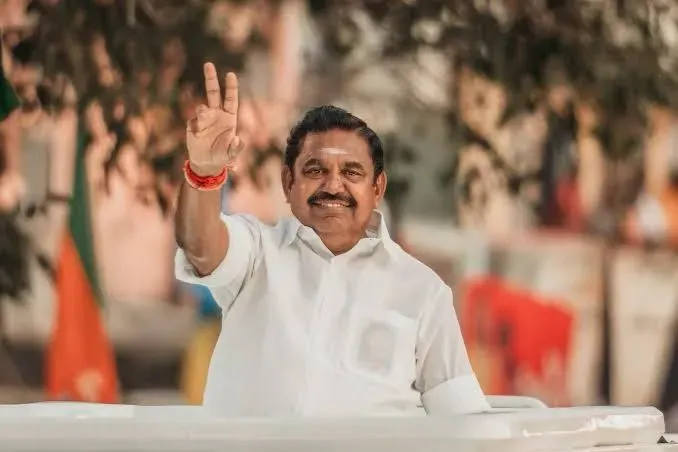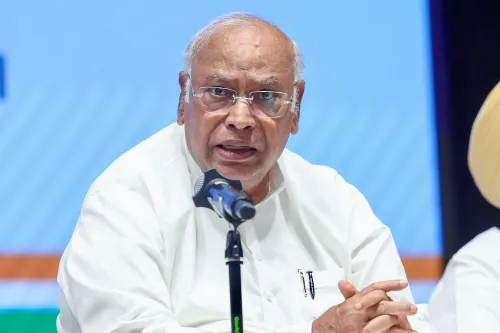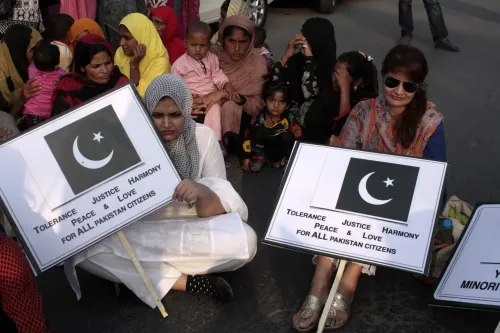How Can the Centre Protect Tamil Nadu's Textile Sector from the Impact of US Tariffs?

Synopsis
Key Takeaways
- Urgent action needed to protect jobs in the textile sector.
- Proposed six-month loan moratorium to alleviate financial pressure.
- Regional focus on Coimbatore, Erode, Tiruppur, Karur, and Namakkal.
- Importance of collaboration between state and central governments.
- Additional challenges include rising costs and tariffs.
Chennai, Aug 31 (NationPress) The general secretary of the AIADMK and former Chief Minister of Tamil Nadu, Edappadi K. Palaniswami, has urged Prime Minister Narendra Modi to implement a six-month pause on loan repayments for textile companies in the state. He cautioned that the new tariffs imposed by the United States on Indian exports could result in significant job losses.
In his statement, Palaniswami also encouraged the government of Tamil Nadu to explore innovative strategies to keep the textile sector's production stable. He criticized the current DMK government, highlighting rising property taxes, increased electricity costs, and escalating cotton prices as additional pressures that have weakened the industry.
Palaniswami pointed out that regions such as Coimbatore, Erode, Tiruppur, Karur, and Namakkal host numerous spinning mills that employ hundreds of thousands of workers. He stated that policy errors in recent years have intensified the challenges faced by manufacturers. Furthermore, he remarked that while the Chief Minister of Tamil Nadu, M.K. Stalin, has called on the Prime Minister via social media to address the US tariffs, the struggles of the industry began much earlier, around the time the DMK government assumed office in 2021.
The AIADMK leader emphasized that the increased prices of Indian goods in the US market would reduce their competitiveness against imports from other countries, leading to a decline in sales in the American market. He stressed, “Exports can only thrive if production remains uninterrupted,” urging the state government to concentrate on eliminating obstacles and restoring investor confidence in the textile sector.
In conclusion, Palaniswami stated that it is crucial for both the state and central governments to move beyond political blame and collaborate to protect the livelihoods of countless workers who depend on the strength of Tamil Nadu’s textile industry.









